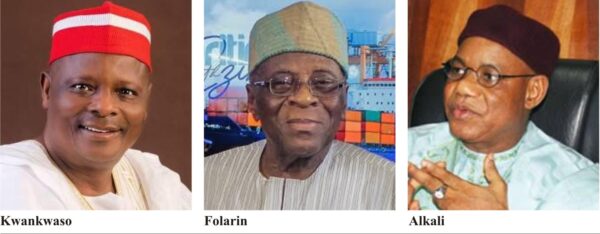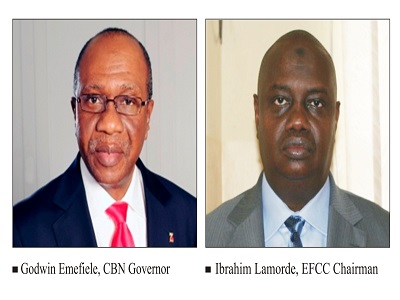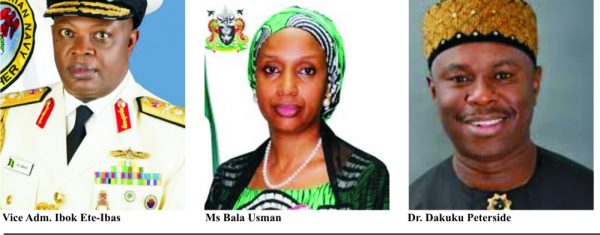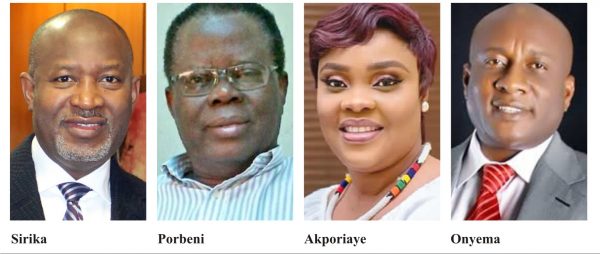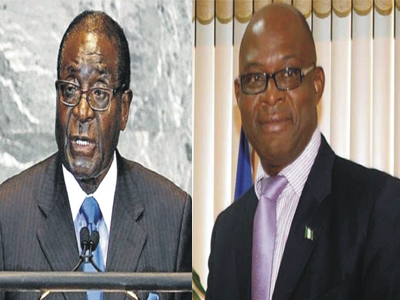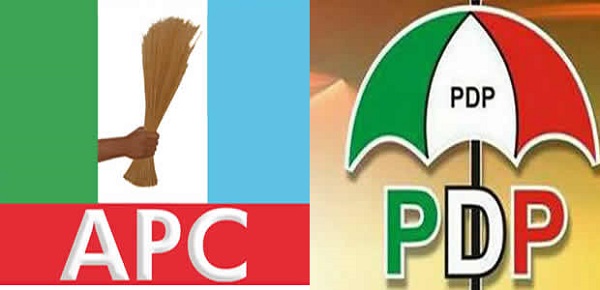Social Contract: Exploring A Paradigm Shift In Maritime Advocacy With Political Parties
By Sabastine Mbah
For decades the maritime sector has been begging for attention and advocating that only those with the sparkles and well-grounded on the workings of the industry should hold sensitive positions. Except for the current Minister of Transportation, Engr. Muazu Sambo, with several decades of practical experience in the Nigerian Inland Waterways (NIWA), preceding Ministers were people with little or no knowledge of how the sector operates.
For the Buhari administration, the sector has been mostly used for political settlement, rather than sectoral development with core professionals in the sector taking charge. Since his emergence as the President of Nigeria, the maritime industry has witnessed the inflow of political trumpeters and apologists.
A President who does not recognize a critical sector and how it can be fully harnessed to grow the economy of the country will certainly not make informed appointments or decisions. This is what has been applicable to previous administrations and the corresponding effect of why Nigeria is ranked low in several maritime indices in the global space.
On the other hand, it is a worrisome situation for stakeholders and practitioners who have dedicated everything to guarantee the operational efficiency and effectiveness of the sector. It is therefore in order to ensure a radical departure from the practice of the past and entrench a culture of professionalism in the appointment to offices in the sector that stakeholders sought to enter into “social contract” with subsequent administrations.
It is against this background that the Prime Maritime Project (PMP), with a vision to berth a true maritime and transport logistic-conscious nation held a Town Hall meeting in Lagos last week and had their guest as the NNPP presidential candidate ,Dr.Rabiu Kwankwaso. This innovation seeks to extract commitments from presidential candidates through the signing of “social contract” with them. The Initiative seeks to bring the maritime industry into the political programmes of political parties to enable them make informed decisions that will Improve the industry. The “contract” will also serve as a reminder for candidates when they eventually get to position of authority while stakeholders will bank on it to make the necessary demands and objections.
In addition, this presents an avenue for the sector to leverage on its electoral relevance through its voting population. The project will be sending a strong reminder to aspirants for their pledge to offer the industry the long desired attention for the electoral powers to work in their favour.
Reacting to the event, a former aide to governor Ifeanyi Okowa of Delta State and former President of Maritime Reporters’ Association of Nigeria(MARAN), Mr. Pius Mordi, said,“Last week, an event that signaled a paradigm shift in advocacy and the search for a viable growth trajectory for the maritime industry held when The Prime Maritime Project held a Town Hall meeting to interrogate the presidential candidates of the political parties on their agenda for the industry as we march towards May 29, 2023.
“For the colleagues behind the project, it is a commentary on the massive work they did that His Excellency, Rabiu Kwankwaso, presidential flagbearer of the NNPP and former governor of Kano State, was there personally to unveil his party’s road map for maritime.
“I commend Elder Asu Beks, Mr. Kingsley Anaroke and Mr. Ray Ugochukwu for the inspiring initiative. For those of us from Delta State which has about the largest network of ports and jetties that regrettably remain idle or at best grossly underutilized, the event resonates with us.
“I urge operators and organisations in the maritime industry to support this project as a way of letting the candidates understand and key into the potential of the industry.
I urge the team to redouble their efforts and bring the other candidates to the forum. Thank you everyone,” Pius stated.
In his welcome address at the occasion, the Chief Operating Officer, PMP, Elder Asu Beks, estimated the worth of the sector as N91trillion and with 15million voting capacities.“That makes us one of the most critical sectors both in terms of contributions to the gross domestic product and a sea of prospective voters. I dare say that no presidential candidate can win the 2023 elections without our votes. Any Presidential candidate who ignores this sector can as well say goodbye to ASO VILLA in 2023” he added.
“What do we gain as a nation by recycling politicians to head key parastatals in a section that is experience-driven and highly professional?” The veteran Journalist and publisher of a Nigeria’s maritime Journal remarked.
On the side of the stakeholders, the chairman of Nigerian Port Consultative Council, Otunba Kunle Folarin, argued that what the industry needs is a new economic agenda for the maritime sector.
“We want a total port reform and local facilitation of policies. We want stakeholders to take part in promoting our maritime sector. We want workable direct foreign investment policies. We want a green field development. We want a free trade zone for all. We want to be landlord and no more tenant of the industry” he stated.
The demands as synchronized and highlighted by the Port Consultative Council chairman encapsulates the cries of the stakeholders and what is expected of any presidential candidate to be able to tap from the 15 million votes the sector boasts of.
Although inherent in this project is a pertinent question for stakeholders and practitioners on what becomes the fate of all the aspirants that engages them and made convincing pledges to address the challenges of the sector? How are the electoral powers, on which the stakeholders of the industry are standing on, will be distributed?
The political class is known for transactional politics and will agree to any public yearning provided it increases his or her public image. It is also a proven fact that during electioneering period, politicians are quick in promising the masses what they have no plans to fulfill.
The current administration has shown that in most cases it churns out mere rhetoric designed for the purpose of gaining votes. The project did not capture how it intends to hold aspirants accountable when either of them eventually emerges victorious and fail in the “Social Contract” signed with the stakeholders. To rely solely on the words of a typical Nigerian politician is to stare into an empty space, you see nothing but hear only sound?
The PMP has provided the platform for stakeholders in series of town hall meetings to meet aspirants and leading the presidential aspirants is the New Nigerian Peoples Party (NNPP) and former governor of Kano State, Sen. Engr. Rabiu Kwankwaso, the founder of NNPP and Chairman Board of Trustees (BoT) of the party, Dr. Boniface Aniebonam, and National Chairman, Prof. Rufai Ahmed Alkali and other party chieftains were in attendance.
The “social contract” has been signed with NNPP and here on the basis that they can be held accountable. The NNPP candidate had earlier failed to attend the 62nd Annual General Meeting of the Nigeria Bar Association held in Lagos on the excuse of a pressing national issue.
Kwankwaso stated that he honoured the PMP invitation owing to the fact that the industry is the root of the party and no one goes far in life by abandoning one’s root. The NNPP Presidential candidate also considered the sector as integral part for economic recovery and building. “My being here today is out of personal conviction that the maritime sector is a critical element to the growth, survival and prosperity of Nigeria”
The former Minister of Defence gave a comprehensive insight into the challenges and hiccups faced by the industry and further outlined what should be expected of him when he mounts the driver- seat of the Nigeria’s vehicle.
He promised to tackle the corruption in the system. “The observed high level of corruption in the system has to be tackled to improve the productivity in the parts”
He also promised to render the necessary assistance to stakeholders to improve efficiency. “The desired assistance to all importers of goods, manufacturers including exporters and other ancillary stakeholders associated with port operations and management will be guaranteed under our party’s regime”.
He promised ease of clearance of goods within 72 hours and tackling piracy particularly across the gulf of Guinea (GOG) and clearing of pollutions discharged by ships at the ports.
What seem to be the pressing needs in the “Social Contract”, can be described as three items, and Kwankwaso assented to them.
He promised to link the rail line from seaports to dry port for decongestion of port and cargo evacuation. “Our government will look into the position of constructing a rail line from both Apapa and Tin-can island ports to dry port area outside Lagos where on arrival goods should be domiciled for clearance in order to stop heavy trucks from causing a gridlock in Lagos”,
He promised to revive the eastern ports. “We should also look into the possibility of opening other ports such as Warri, Port Harcourt, and Calabar etc. in order to decongest Lagos ports”.
He also promised to ensure that only those who are in the system and fully abreast with the workings of the industry will pilot its affairs. In his words, “…Under our watch maritime professionals will take charge of the maritime sector”.
The NNPP Presidential Candidate has laid to bare his blueprint for the maritime sector and can, and should be held accountable by stakeholders whom he has gone into with.
It is also expected that this project being the first of its kind in the country will provide answers and strong political-will that will ultimately reposition the Maritime sector, and re-build the Nigerian economy


